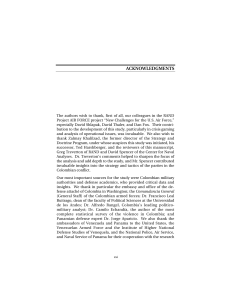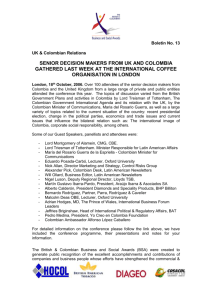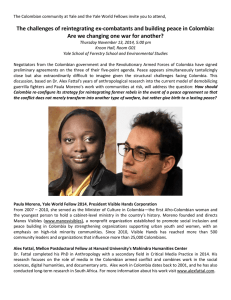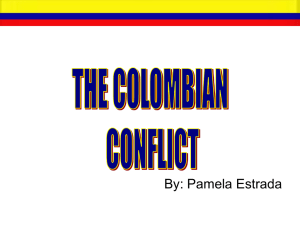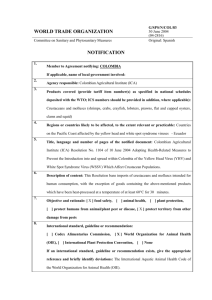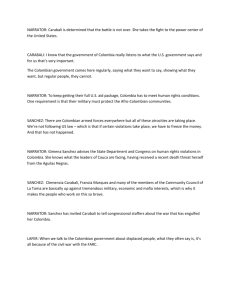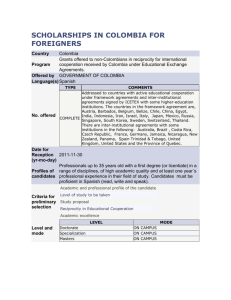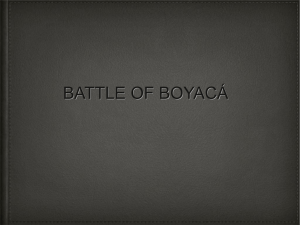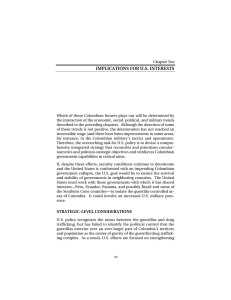COLOMBIA: HISTORY, LITERATURE AND FILM
advertisement
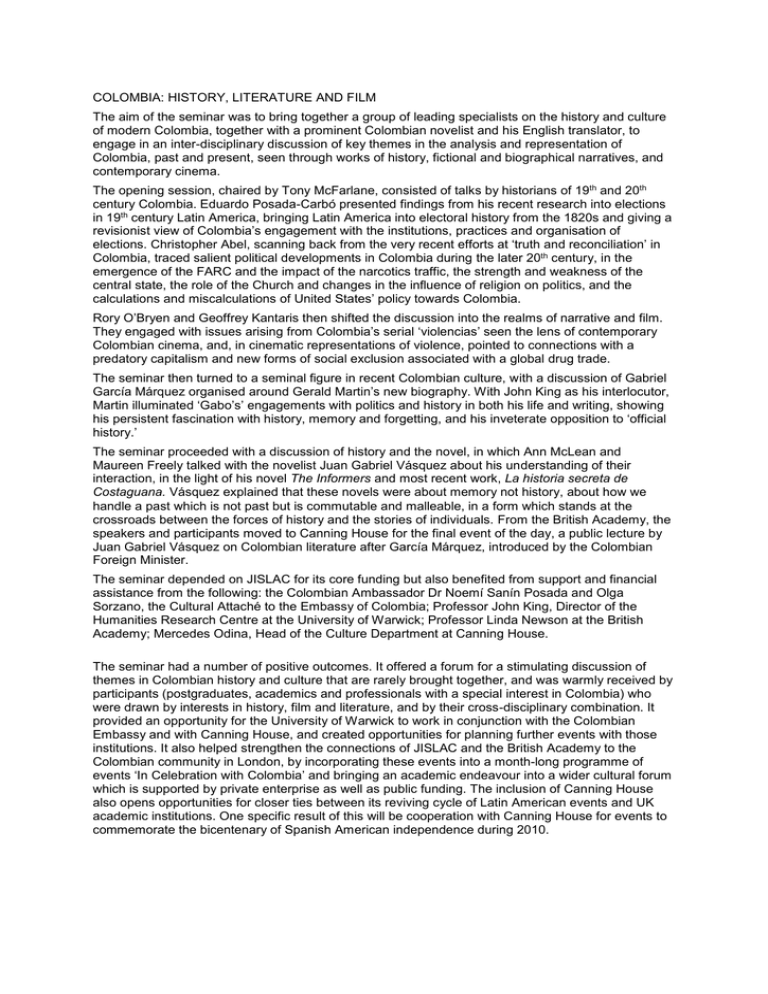
COLOMBIA: HISTORY, LITERATURE AND FILM The aim of the seminar was to bring together a group of leading specialists on the history and culture of modern Colombia, together with a prominent Colombian novelist and his English translator, to engage in an inter-disciplinary discussion of key themes in the analysis and representation of Colombia, past and present, seen through works of history, fictional and biographical narratives, and contemporary cinema. The opening session, chaired by Tony McFarlane, consisted of talks by historians of 19th and 20th century Colombia. Eduardo Posada-Carbó presented findings from his recent research into elections in 19th century Latin America, bringing Latin America into electoral history from the 1820s and giving a revisionist view of Colombia’s engagement with the institutions, practices and organisation of elections. Christopher Abel, scanning back from the very recent efforts at ‘truth and reconciliation’ in Colombia, traced salient political developments in Colombia during the later 20th century, in the emergence of the FARC and the impact of the narcotics traffic, the strength and weakness of the central state, the role of the Church and changes in the influence of religion on politics, and the calculations and miscalculations of United States’ policy towards Colombia. Rory O’Bryen and Geoffrey Kantaris then shifted the discussion into the realms of narrative and film. They engaged with issues arising from Colombia’s serial ‘violencias’ seen the lens of contemporary Colombian cinema, and, in cinematic representations of violence, pointed to connections with a predatory capitalism and new forms of social exclusion associated with a global drug trade. The seminar then turned to a seminal figure in recent Colombian culture, with a discussion of Gabriel García Márquez organised around Gerald Martin’s new biography. With John King as his interlocutor, Martin illuminated ‘Gabo’s’ engagements with politics and history in both his life and writing, showing his persistent fascination with history, memory and forgetting, and his inveterate opposition to ‘official history.’ The seminar proceeded with a discussion of history and the novel, in which Ann McLean and Maureen Freely talked with the novelist Juan Gabriel Vásquez about his understanding of their interaction, in the light of his novel The Informers and most recent work, La historia secreta de Costaguana. Vásquez explained that these novels were about memory not history, about how we handle a past which is not past but is commutable and malleable, in a form which stands at the crossroads between the forces of history and the stories of individuals. From the British Academy, the speakers and participants moved to Canning House for the final event of the day, a public lecture by Juan Gabriel Vásquez on Colombian literature after García Márquez, introduced by the Colombian Foreign Minister. The seminar depended on JISLAC for its core funding but also benefited from support and financial assistance from the following: the Colombian Ambassador Dr Noemí Sanín Posada and Olga Sorzano, the Cultural Attaché to the Embassy of Colombia; Professor John King, Director of the Humanities Research Centre at the University of Warwick; Professor Linda Newson at the British Academy; Mercedes Odina, Head of the Culture Department at Canning House. The seminar had a number of positive outcomes. It offered a forum for a stimulating discussion of themes in Colombian history and culture that are rarely brought together, and was warmly received by participants (postgraduates, academics and professionals with a special interest in Colombia) who were drawn by interests in history, film and literature, and by their cross-disciplinary combination. It provided an opportunity for the University of Warwick to work in conjunction with the Colombian Embassy and with Canning House, and created opportunities for planning further events with those institutions. It also helped strengthen the connections of JISLAC and the British Academy to the Colombian community in London, by incorporating these events into a month-long programme of events ‘In Celebration with Colombia’ and bringing an academic endeavour into a wider cultural forum which is supported by private enterprise as well as public funding. The inclusion of Canning House also opens opportunities for closer ties between its reviving cycle of Latin American events and UK academic institutions. One specific result of this will be cooperation with Canning House for events to commemorate the bicentenary of Spanish American independence during 2010.
